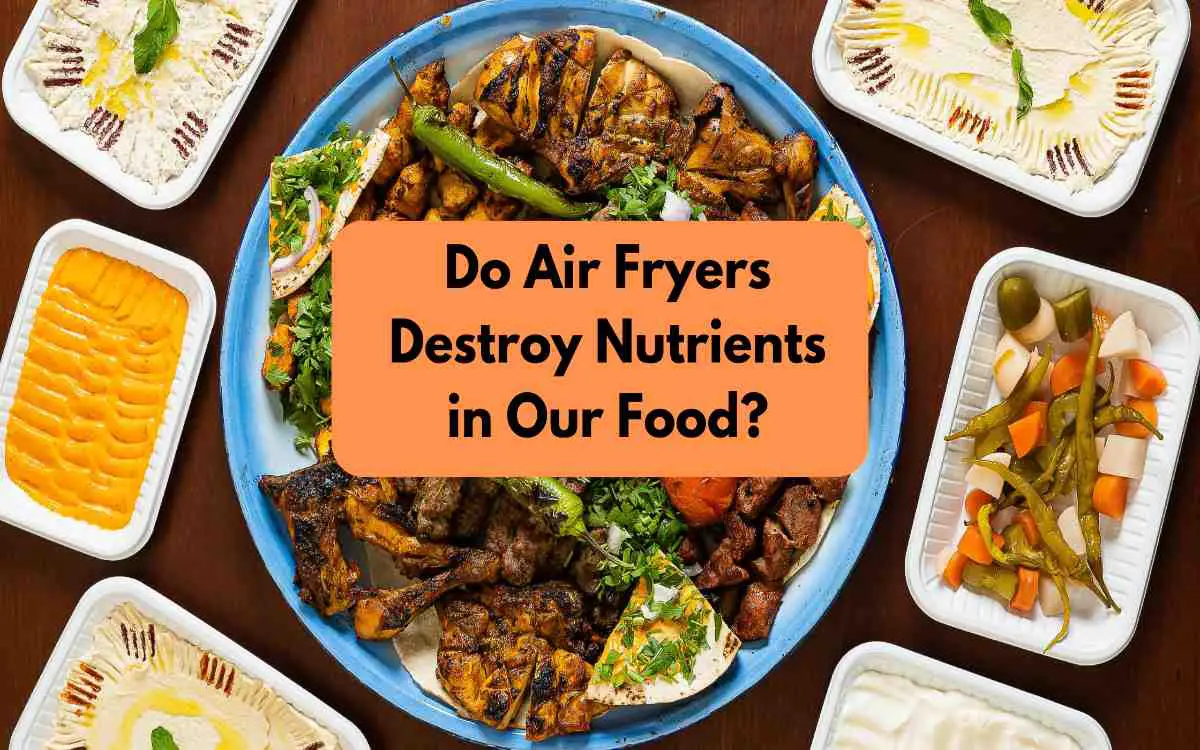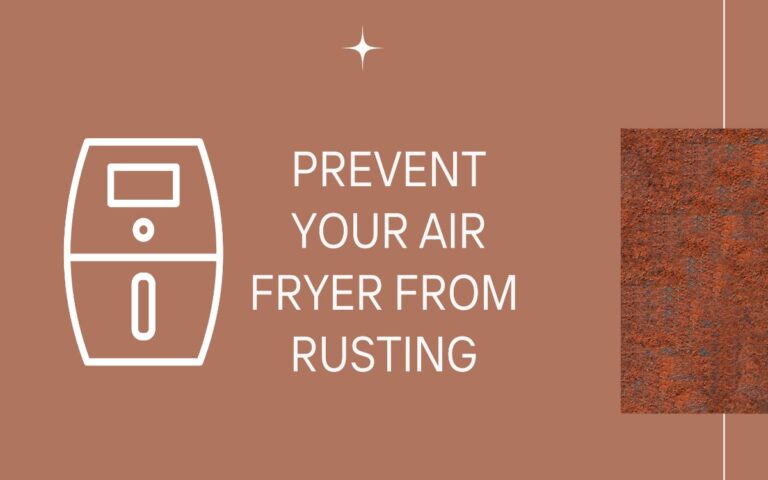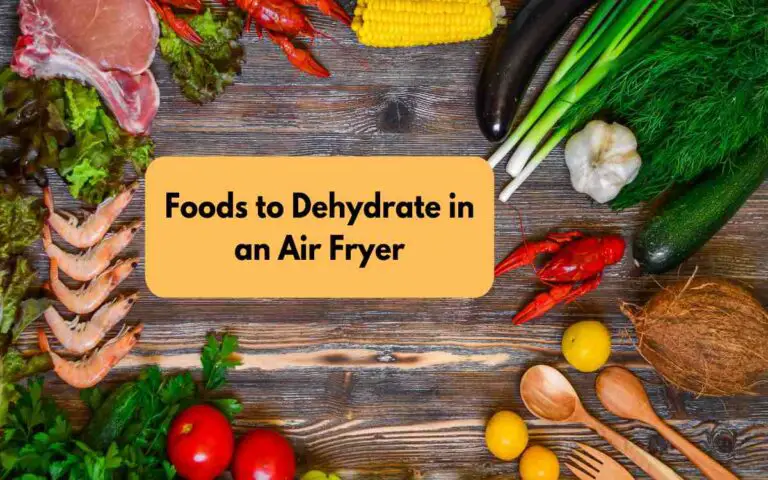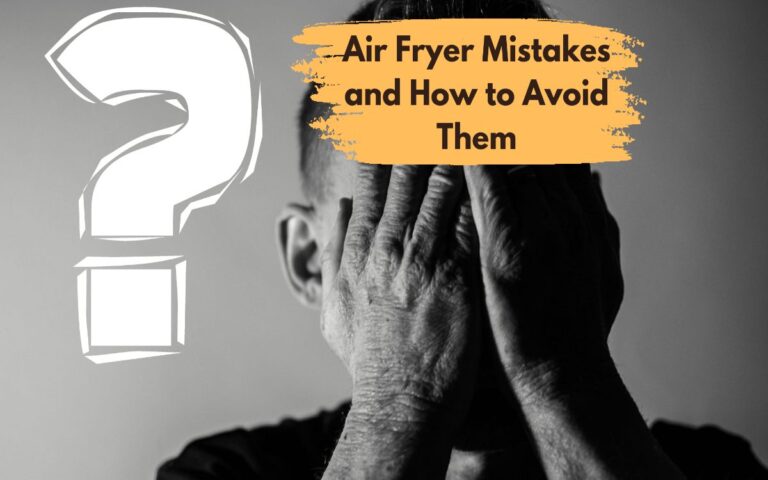Do Air Fryers Destroy Nutrients in Our Food?
We eat to add nutrients that allow our bodies to function properly.
Have you ever wondered if the crispy and delicious food you enjoy from an air fryer is still packed with all the essential nutrients your body needs?
Since air fryers use hot air and high cooking temperatures, there has been some debate about whether they potentially destroy nutrients.
So, yes, air fryers do cause some nutrient loss during cooking. Any type of cooking will remove some nutrients from food.
Air fryers are considered to be one of the better cooking methods in terms of nutrient retention compared to other traditional cooking methods.
In this article, we’ll tackle nutrient retention with air fryers when preparing your meals.
Remember, what you eat matters, and knowing how to maximize nutritional value while enjoying delicious meals is key to a healthy lifestyle.
The Effect of Air Fryers on Nutrients
When we cook food, especially at high temperatures, some nutrients are inevitably lost.
Heat, light, air, and water can all contribute to nutrient degradation.
Vitamins such as vitamins C and B vitamins are particularly sensitive to heat and can be easily destroyed during cooking.
To minimize this in the air fryer, cook foods rich in these vitamins for shorter durations and at lower temperatures.
Air fryers circulate hot air to cook with significantly less oil which helps retain more fat-soluble vitamins like vitamins A, D, E, and K.
The shorter cooking time and lower oil absorption help to prevent the breakdown of certain heat-sensitive vitamins and minerals.
However, you should note that the specific nutrient retention can vary depending on the type of food and the cooking time and temperature used in the air fryer.
Impact of Air Fryers on Antioxidants
Antioxidants play a vital role in our health by combating oxidative stress and protecting our cells from damage.
Studies suggest that air frying may help preserve the antioxidant content of certain foods.
The study published in the National Library of Medicine found that air frying retained more antioxidants in Brassica vegetables compared to other cooking methods.
Tips for Maximizing Nutrient Retention in Air Fryer
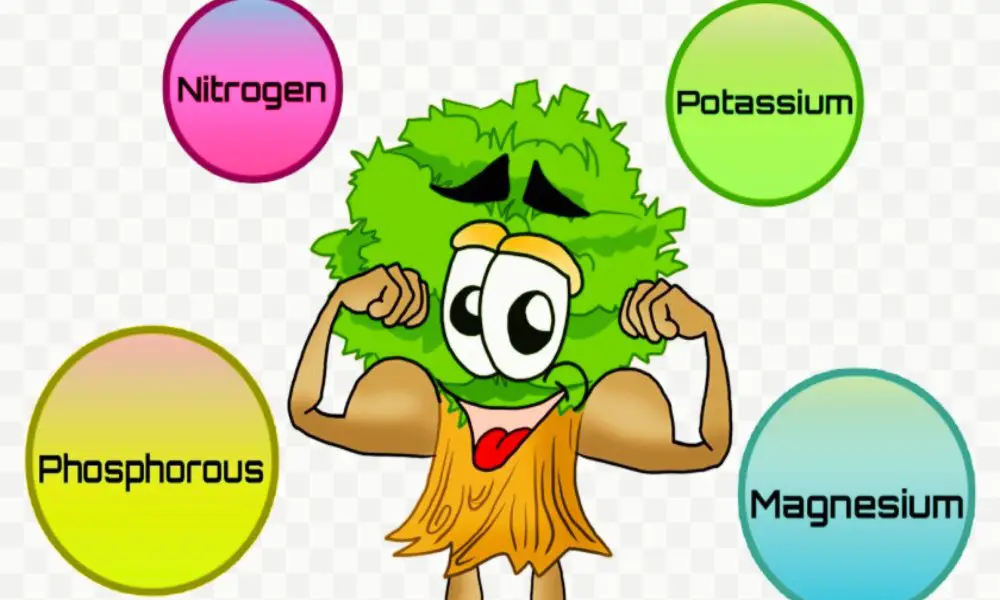
While air frying can help retain nutrients in food, there are additional steps you can take to maximize nutrient retention:
- Choose nutrient-dense foods: Start with fresh, high-quality ingredients that are naturally rich in nutrients.
- Cut food into smaller pieces: When cooking meat such as chicken breasts, reduce their size. Smaller pieces of food cook faster and more evenly, reducing the cooking time and potential nutrient loss.
- Use minimal oil: While air frying requires a small amount of oil for flavor and browning, using excessive oil can lead to unnecessary calorie intake and potential nutrient loss. Too much oil may cause the air fryer to burn everything when cooking.
- Avoid overcooking: Pay attention to cooking times and temperatures to prevent overcooking, which can result in nutrient degradation. Make use of an air fryer cheat sheet that has guides on appropriate cooking time and temperature.
- Add herbs and spices: Enhance the flavor of your air-fried dishes with herbs and spices, which not only add taste but also provide additional antioxidants and phytochemicals.
Frequently Asked Questions
1. Do air fryers destroy all nutrients in food?
No, air fryers do not destroy all nutrients in food.
While some nutrient loss may occur due to heat and air exposure, air frying generally retains a significant amount of nutrients compared to deep frying.
2. Can I air fry vegetables without losing their nutrients?
Yes, air frying vegetables can help retain their nutrients.
The shorter cooking time and minimal water and oil usage can help preserve the nutritional value of vegetables.
3. Can I air fry meat without losing its protein content?
Yes, air frying meat can help retain its protein content.
The high heat and shorter cooking time in air fryers allow for faster cooking while minimizing protein denaturation.
Make sure to check out our list of the top air fryer salmon and air fryer chicken wings recipes.
4. Does air frying affect the texture of food?
Yes, air frying can affect the texture of food.
Depending on the food, it can make the exterior crispy and golden while maintaining a moist and tender interior.
5. Can air frying be a healthier option for individuals with dietary restrictions?
Yes, air frying can be a healthier alternative for individuals with dietary restrictions, as it requires less oil and cooking time.
6. Are all types of foods suitable for air frying?
Most foods can be air fried, including vegetables, meats, and even desserts.
However, not all foods are suitable for air frying such as foods with wet batter.
Read our comprehensive article on things you should not cook in an air fryer.
7. Does air frying affect the taste of the food?
Yes, air frying can affect the taste of the food.
No use or a reduction in oil in the air fryer can lead to a lighter, less greasy taste compared to traditional deep-fried foods.
The texture may differ slightly, but many people find air-fried food delicious and satisfying.
Conclusion
While some nutrient losses may occur during the air frying process, the overall nutrient retention is higher than deep frying.
By using less oil and shorter cooking times, air fryers help preserve vitamins, minerals, and antioxidants in our food.
Incorporating a variety of nutrient-rich ingredients into your air frying routine can ensure a balanced and delicious diet.
If you’re looking to make healthier food choices without sacrificing taste and texture, an air fryer will be a valuable addition to your kitchen.
They offer a balance between taste and health, so why not give it a try?
Helpful Articles:
- Air Fryer Myths You Need to Stop Believing
- Frozen Foods to Cook in an Air Fryer
- Is The Air Fryer Safe for Baby Food?
- Where Do You Store an Air Fryer?
- Why Won’t My Food Get Crispy in the Air Fryer?
- How Can I Find Recipes for My Air Fryer?
- Air Fryer Chicken Parmesan Recipes - September 17, 2024
- Air Fryer Sweet Potato Fries Recipes - August 8, 2024
- Air Fryer Seasoning Mistakes You’re Making - July 22, 2024

